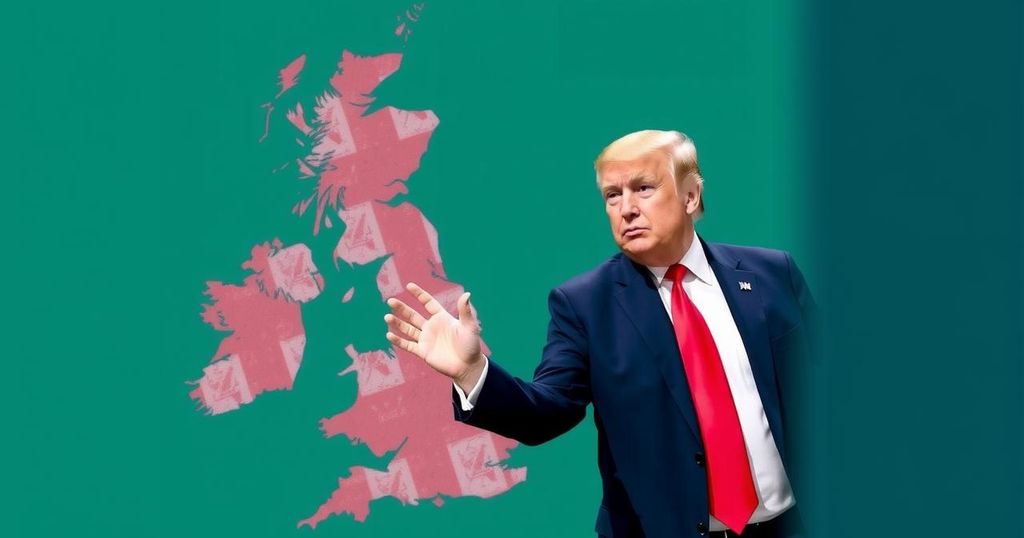UK’s Commitment to Climate Leadership at Cop29 Amidst Global Challenges

Ed Miliband, UK energy secretary, has pledged the UK will lead efforts at Cop29 to strengthen global climate initiatives following Trump’s re-election, which threatens US engagement. He emphasized the need for the UK to become a clean-energy superpower for national security. Global leaders, facing internal crises, still aim for significant financial commitments for poorer countries to tackle climate change. Despite uncertainties, Miliband’s proactive approach seeks to reaffirm the UK’s climate leadership and collaborative efforts at Cop29.
In light of Donald Trump’s re-election, UK energy secretary Ed Miliband has emphasized the necessity for the United Kingdom to enhance its commitment to renewable energy as a matter of national security. As the Cop29 climate summit approaches, Miliband pledged that the UK would assume a leadership role in negotiating vital global agreements essential for addressing the climate crisis. He articulated that transforming the UK into a clean-energy superpower is crucial for national security and future generations. Miliband’s proactive stance contrasts sharply with Trump’s dismissal of climate science, who has signaled intentions to withdraw the US from the Paris climate agreement once more. This potential shift has caused upheaval among global leaders, compelling them to recalibrate their expectations for collaborative climate action. The summit, hosted in Baku, Azerbaijan, over the next fortnight, has already seen several high-profile cancellations, including EU Commission President Ursula von der Leyen and German Chancellor Olaf Scholz. Despite these setbacks, Miliband assured that the UK will lead the charge for effective climate action and support vulnerable countries in their fight against climate-related challenges. He is determined to present the UK as a paradigm of climate leadership, urging other nations to contribute their fair share. Former Chair of the UK’s Committee on Climate Change, Adair Turner, echoed concerns regarding the implications of Trump’s re-election on US climate actions, indicating that substantial US assistance is now in jeopardy. Countries like the UK are under pressure to offer rising financial assistance to impoverished nations, aiming for at least $1 trillion annually by 2035 to alleviate greenhouse gas emissions and adapt to harsher climatic conditions. There are contentions over funding models, with proposals for taxes on fossil fuels and high-carbon activities under consideration, but the viability and political reception of such measures remain in question. David Hillman from the group Stamp Out Poverty urged that UK policymakers should not let uncertainties stemming from the new US administration hinder significant advancements in climate finance.
The Cop29 climate summit represents a pivotal moment in global efforts to combat climate change, especially in the wake of significant political shifts such as the re-election of Donald Trump. His previous tenure was marked by the withdrawal from international climate commitments, which raised alarms among environmental activists and leaders worldwide regarding the future of climate agreements. Furthermore, the urgency for developed nations to support poorer countries in achieving climate resilience and sustainability is paramount, as they are often the most adversely affected by climate-related disasters. The interactions at Cop29 will play a crucial role in shaping how global climate finance is structured, including the discussion of potential taxation strategies focusing on fossil fuels and high-income individuals to finance climate initiatives.
The UK’s commitment to lead at Cop29 signals a renewed effort to counteract potential setbacks posed by the re-election of Donald Trump. Miliband’s statements emphasize the critical importance of transitioning to renewable energy for both national and global security. As nations gather in Baku, the ability of developed countries to provide substantial climate financing will be crucial for supporting vulnerable nations and combating the escalating climate crisis. This summit represents not only a test of diplomatic will but also a potential turning point in global climate policy amidst increasing environmental challenges.
Original Source: www.theguardian.com







